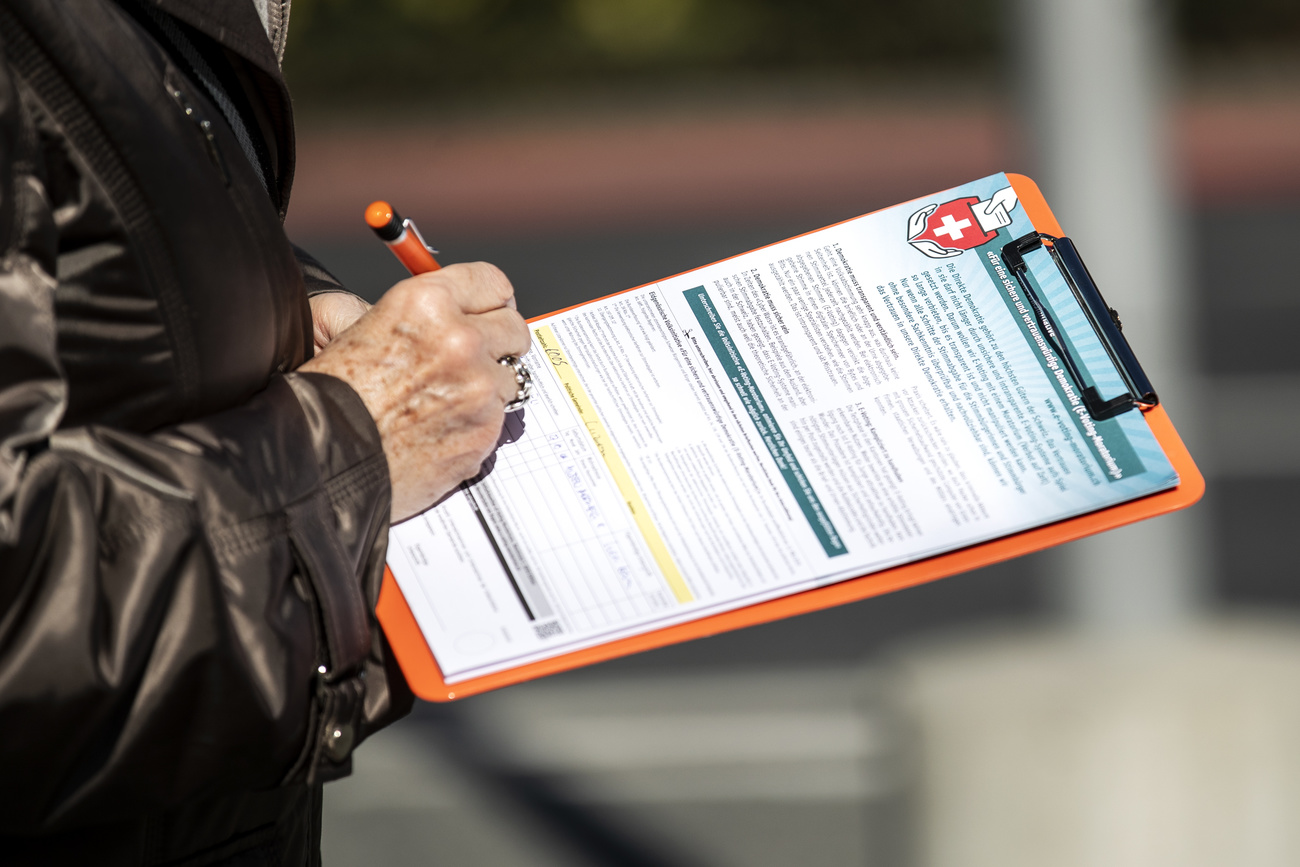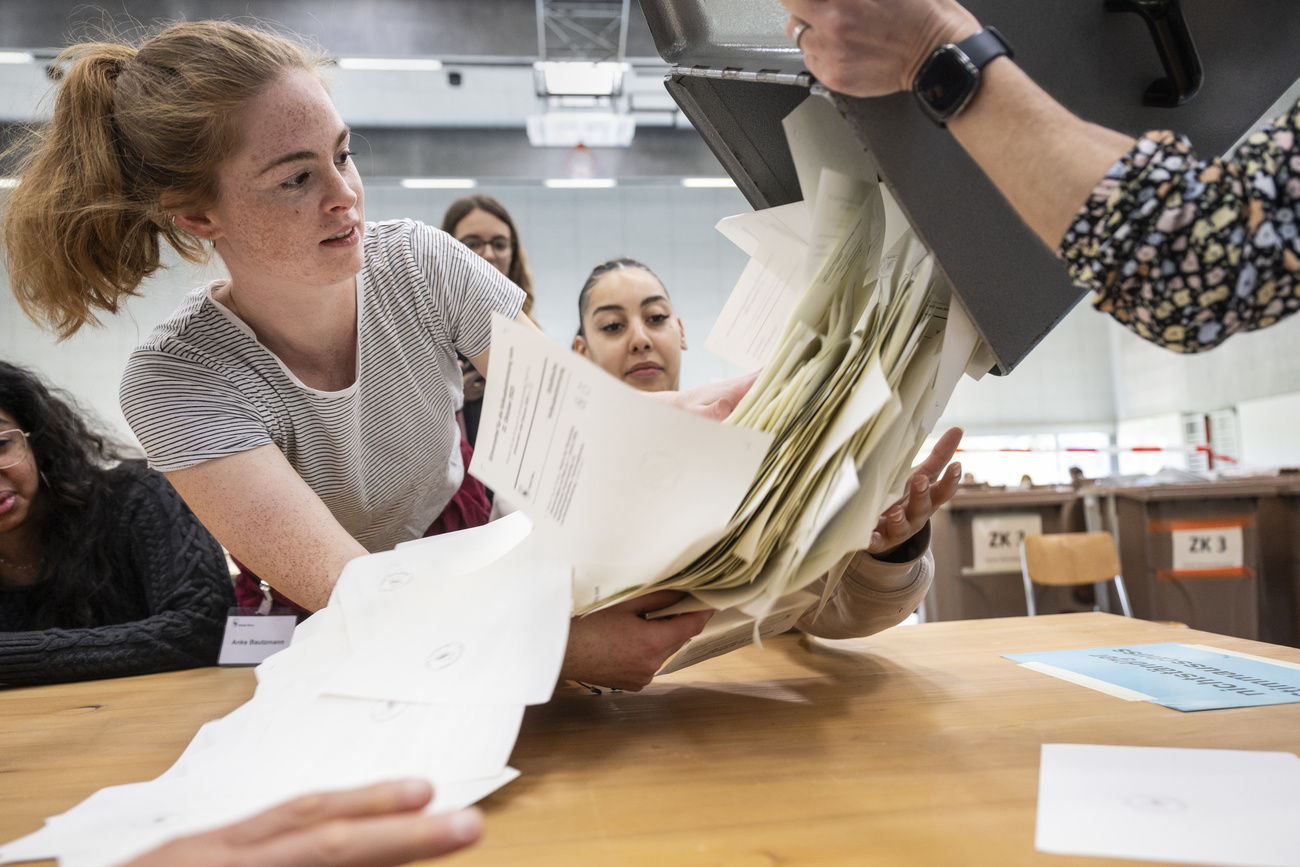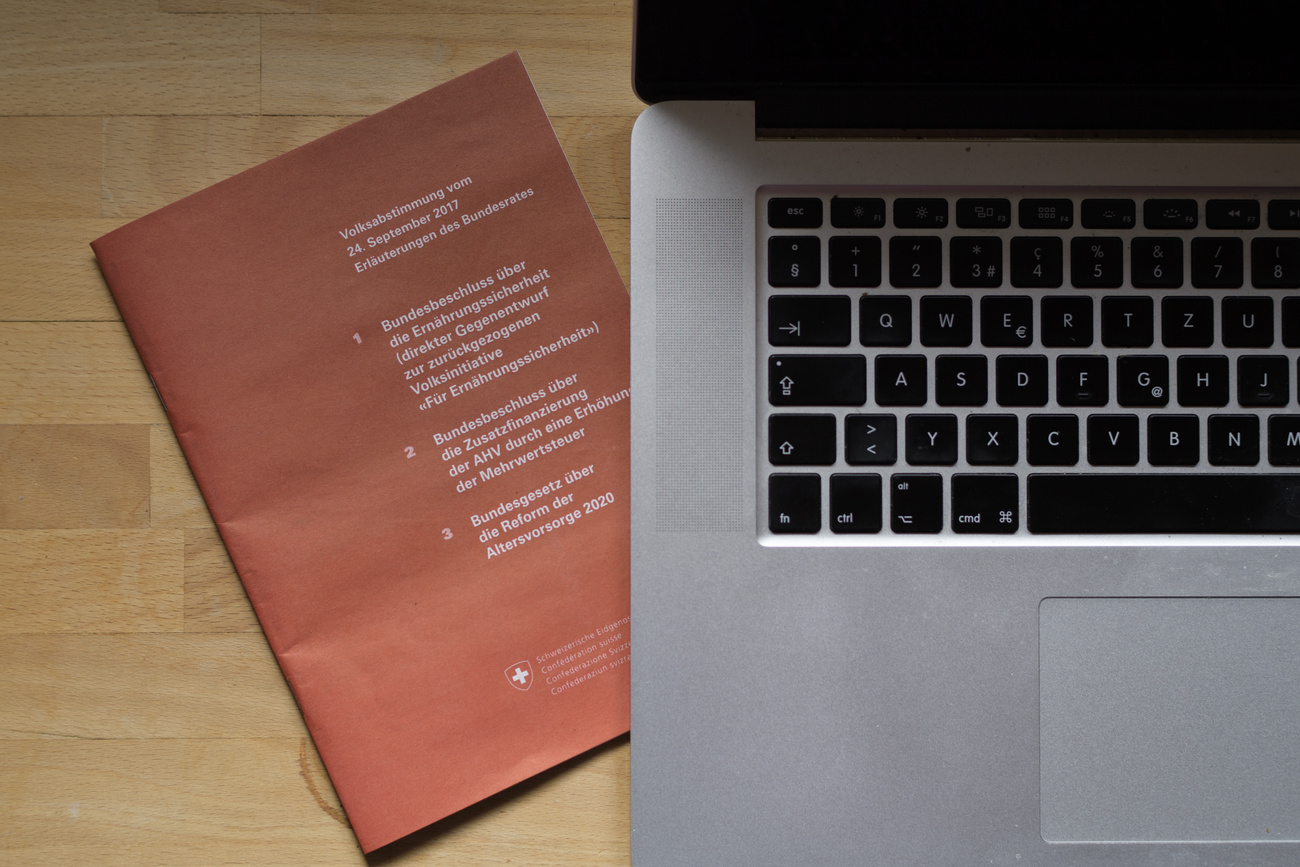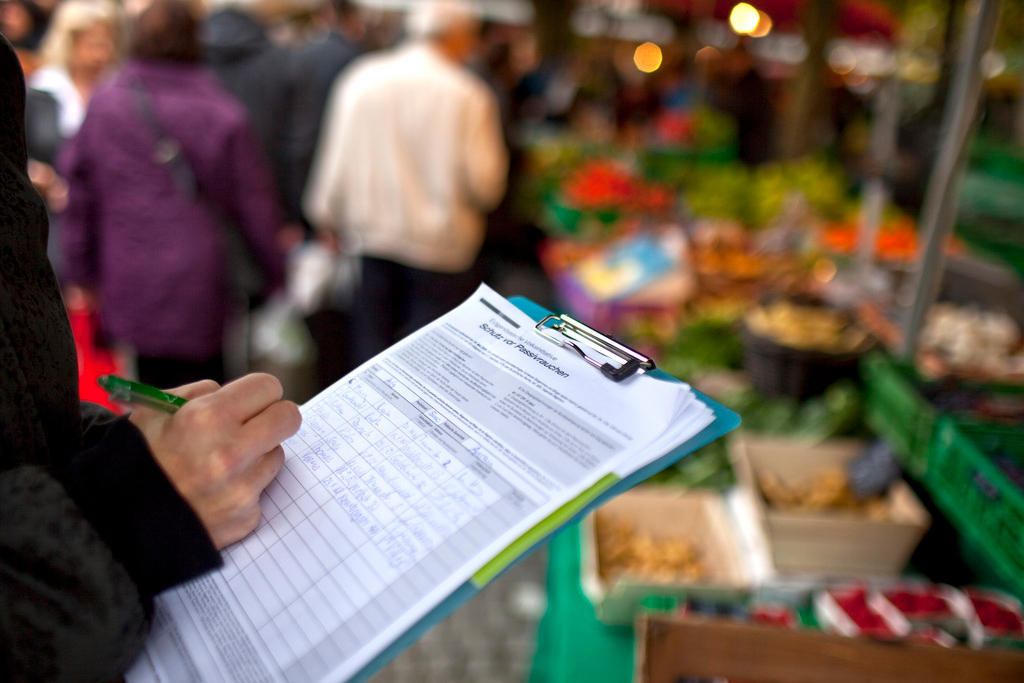‘Signatures scam’ reveals cracks in Swiss system

Once upon a time paper was seen as a guarantee of security in the Swiss voting system. Those days are over. With the so-called signatures scam, Switzerland is facing a paradigm shift.
What happened?
Commercial signature collectors are alleged to have forged signatures on a large scale in Switzerland. Around a dozen popular initiatives, which require at least 100,000 signatures to be validated, are suspected of having been put before voters thanks to forged signatures.
An investigation by the Office of the Attorney General is underway. Meanwhile politicians are calling for new measures. What an investigation by Tamedia newspapers has brought to light has hit Switzerland to the core. Trust in procedures is at stake, as is direct democracy.
The Federal Chancellery says so far there is no evidence that initiatives built on forged signatures went to the ballot box. But can this reassurance be trusted?
One in three signatures or identities on the collection forms for people’s initiatives turned out to be forged in commercial collections, Marc Wilmes, who checks signatures for a living, told Swiss public television, SRF. Wilmes adds that municipalities can check addresses and dates of birth, but not signatures. This is remarkable because it is the signature that validates citizens’ voting cards in most cantons.
What are the lessons learnt?
Trust has been shaken. That is the first lesson to be learnt from this affair, which is likely to provoke a lot more work and discussion for Switzerland.
The second realisation is just as sobering: the signature scam shows that falsifying citizens’ identities is not a question of feasibility in Switzerland, but one of energy. You can do it if you want to and if you have no scruples.

The third lesson is more trivial and expected, but also somewhat brutal: there is a willingness in Switzerland to buy referendums, and this willingness has grown in recent years.
What is the role of the federal government?
The authorities have been investigating signs of discrepancies in the collection of signatures for years and kept quiet about it. Remarkably, canton Neuchâtel banned commercial signature collections as early as 2021 after observing this.
But it is even more remarkable that the Federal Council lifted this ban in 2023, citing federal law. It did so at a time when its staff unit, the Federal Chancellery, was investigating precisely this fraud scheme. It filed a criminal complaint in 2022.
If trust in the voting system is the greatest good, it is difficult to understand how the Federal Chancellery and Federal Council have held on to this “normal” for so long and so quietly. This, too, will one day be added to the sum when calculations are made of how much trust the signatures scam has cost.
What role does federalism play?
It was an overly credulous assumption that the state can handle paper. It operates in a federal network of municipalities, cantons and the government.
The great need for synchronisation between these three levels of Swiss democracy can lead to errors, as it did in the 2023 elections, when the federal government included the results from three cantons in the national total several times.

More
Swiss election results revised after vote counting error
So it’s possible to find security loopholes, if one looks, in the very federal system that makes Switzerland.
Now we also know that these gaps exist in the digital space as well as on paper.
What does this mean for e-collection and e-ID?
There are already calls for a more secure system. The most obvious answer to this is electronically verified signature collection, also known as “e-collecting” in German. This was created because public debate has shifted to the internet. It is becoming increasingly difficult to obtain signatures on the street. The internet, though, makes signature collecting possible, even easier.
E-collecting was often considered insufficiently secure. Now it is seen not only as a more convenient and efficient alternative, but also as a more reliable one. That is new.
The pre-requisite for this is the creation of an electronic identity. This is well on the way to being introduced in Switzerland, with estimates of as early as 2026. The first attempt failed due to data protection concerns. The second version is now widely accepted. It was approved by a large majority in the House of Representatives. The Senate is also expected to give it its blessing in the autumn session.
This could herald a paradigm shift. Until now, paper has guaranteed the reliability of the Swiss voting system. This is no longer the case. In light of the current debate, it even lags behind digital methods.
What does this mean for e-voting?
The fact that paper guarantees security and verifiability was previously the strongest argument against e-voting. Now it is weakening. This does not mean that e-voting is necessary for Switzerland for security reasons. But all those who have long wished for e-voting can regard the signatures scam as a godsend and accept it. One obstacle has been removed.

More
Is e-voting making any progress in Switzerland?
Edited by Benjamin von Wyl. Adapted from German by DeepL/gw

In compliance with the JTI standards
More: SWI swissinfo.ch certified by the Journalism Trust Initiative











You can find an overview of ongoing debates with our journalists here . Please join us!
If you want to start a conversation about a topic raised in this article or want to report factual errors, email us at english@swissinfo.ch.